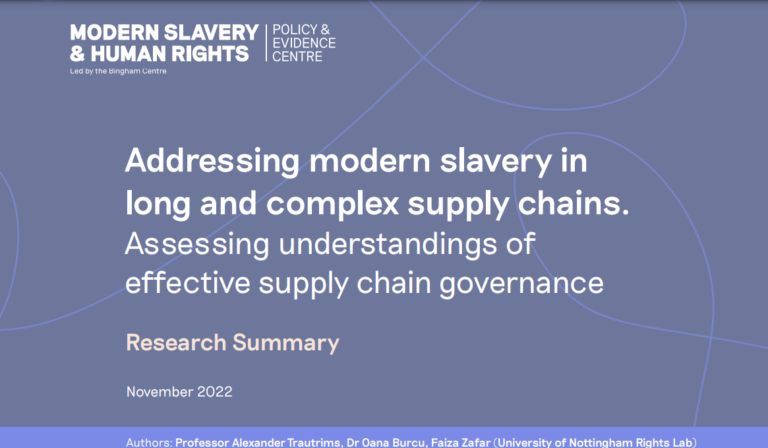This is a summary of the report: Assessing understandings of effective supply chain governance , a Modern Slavery and Human Rights Policy and Evidence Centre (the Modern Slavery PEC) research project, funded by the UK Arts
and Humanities Research Council. The research was conducted by Professor AlexanderTrautrims, Dr Oana Burcu and Faiza Zafar (University of Nottingham Rights Lab) and Charlotte Lush (Workforce Disclosure Initiative, ShareAction).The full report can be accessed on the Modern Slavery PEC website at modernslaverypec.org/resources/long-supply-chains. The Modern Slavery PEC has actively supported the production of outputs from this project. In particular, the research team and the Modern Slavery PEC worked closely together to shape the research and its outputs and discuss its policy implications. This Research Summary is a product of this co-working arrangement. However, the views expressed in this summary and the full report are those of the authors and not necessarily of the Modern Slavery PEC. This project was funded through an open call for responsive research proposals to examine how businesses can establish and increase their visibility and influence over (particularly) the lower tiers of long and complex supply.

